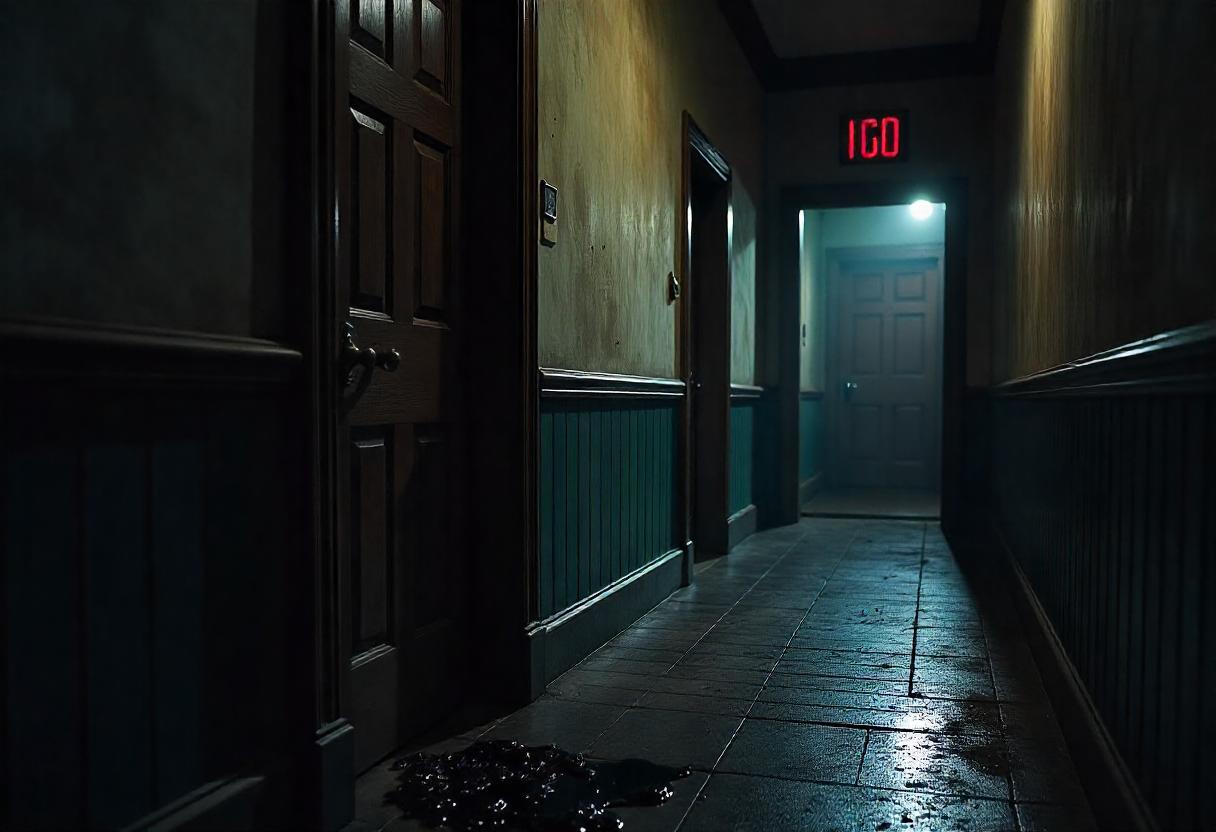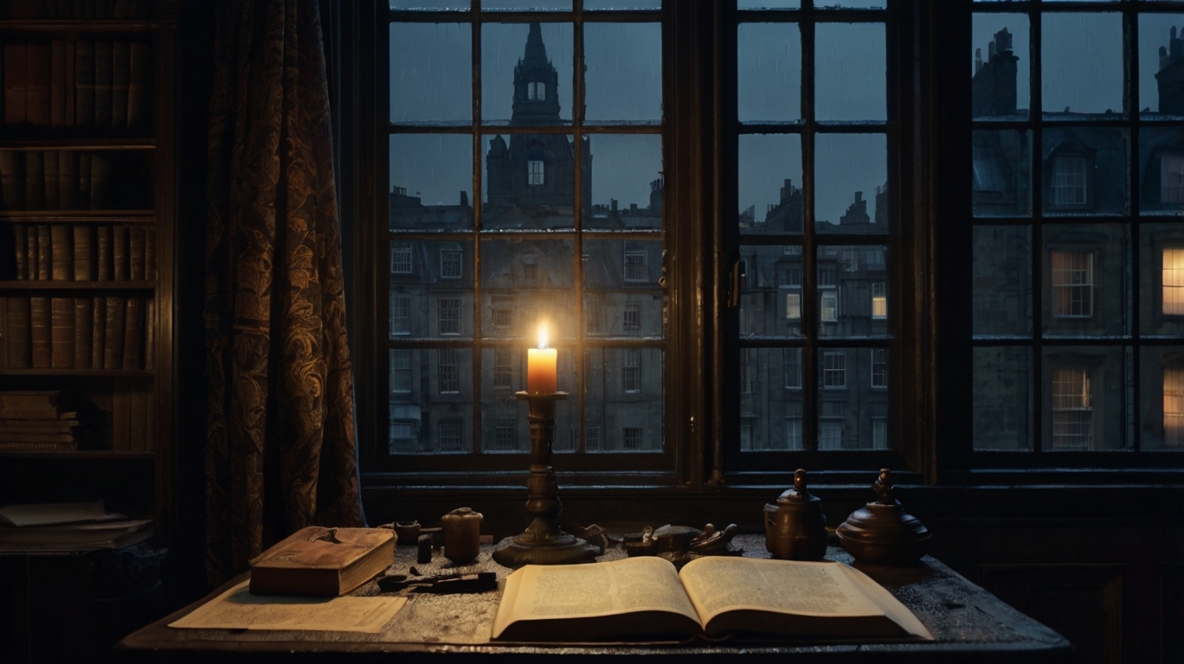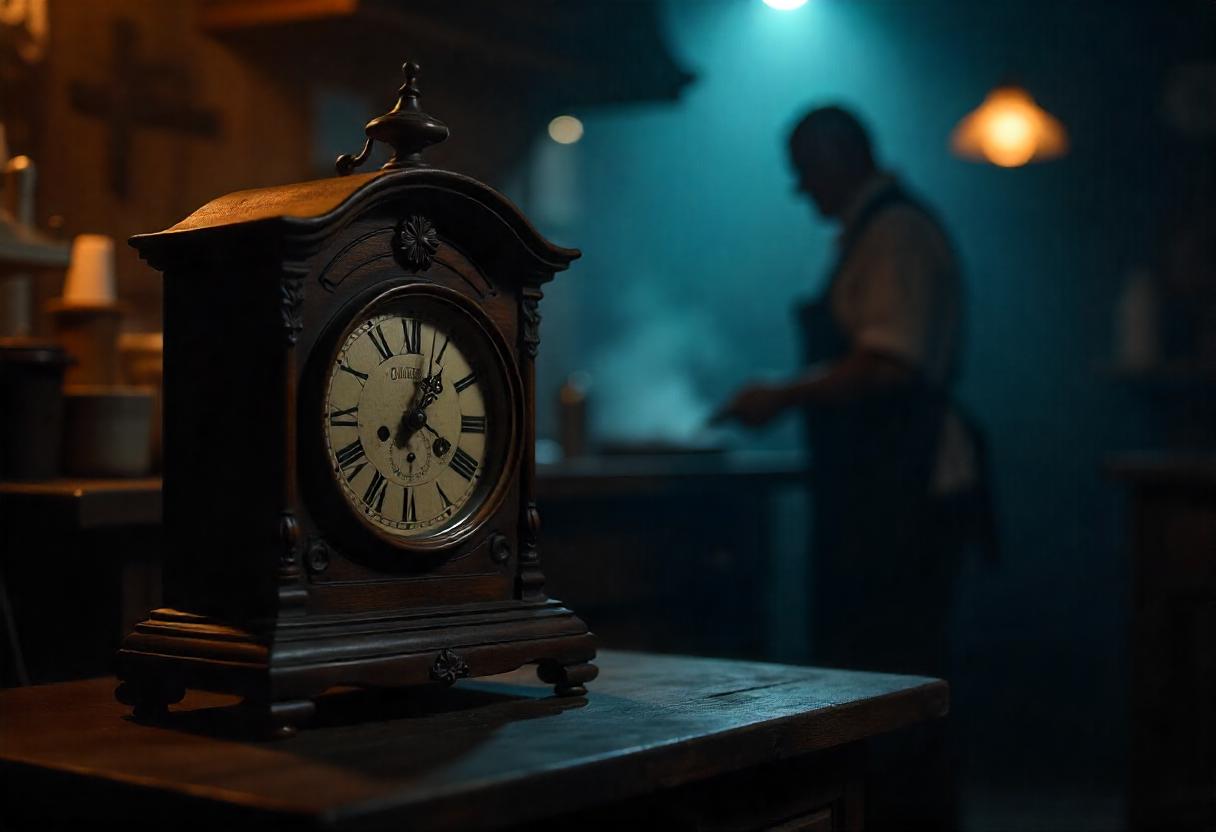
The Third Key
After inheriting an abandoned townhouse, a woman discovers three locks — but only two keys. The final door hides a truth long buried.
When her estranged uncle died, Clara Hastings inherited a townhouse she had never seen before.
Tucked between crumbling brick alleys in the oldest part of London, the house loomed like a forgotten monument — shuttered windows, a door heavy with iron studs, the faint smell of dust and something older clinging to its stones.
Inside, she found three locked doors.
Each door was numbered: I, II, and III — carved in careful Roman numerals above the frames.
In the lawyer’s envelope were two keys.
The first key opened Door I:
A room filled with paintings — endless portraits of strangers, their faces blurred as if the paint itself recoiled from memory.
The second key opened Door II:
An empty library, its shelves bowed and broken, scattered with pages that had no words, only stains in the shape of letters that seemed to move when she wasn’t looking.
But Door III remained locked.
No key.
No hint.
Every night, Clara heard faint knocks from behind Door III.
Not demanding — more like tapping, waiting.
The noise grew louder at exactly 3:03 AM, then fell silent just as suddenly.
One evening, while sifting through the attic, she found a diary belonging to her uncle.
Most pages were torn out.
On the last surviving page, scrawled in frantic ink:
"You must never open the third door.
It is not locked to keep you out.
It is locked to keep it in."
That night, the knocking began again — but this time, it was accompanied by whispering.
And from under the crack of Door III,
a thin line of black liquid began to seep out, pulsing softly in time with her own heartbeat.
Tucked between crumbling brick alleys in the oldest part of London, the house loomed like a forgotten monument — shuttered windows, a door heavy with iron studs, the faint smell of dust and something older clinging to its stones.
Inside, she found three locked doors.
Each door was numbered: I, II, and III — carved in careful Roman numerals above the frames.
In the lawyer’s envelope were two keys.
The first key opened Door I:
A room filled with paintings — endless portraits of strangers, their faces blurred as if the paint itself recoiled from memory.
The second key opened Door II:
An empty library, its shelves bowed and broken, scattered with pages that had no words, only stains in the shape of letters that seemed to move when she wasn’t looking.
But Door III remained locked.
No key.
No hint.
Every night, Clara heard faint knocks from behind Door III.
Not demanding — more like tapping, waiting.
The noise grew louder at exactly 3:03 AM, then fell silent just as suddenly.
One evening, while sifting through the attic, she found a diary belonging to her uncle.
Most pages were torn out.
On the last surviving page, scrawled in frantic ink:
"You must never open the third door.
It is not locked to keep you out.
It is locked to keep it in."
That night, the knocking began again — but this time, it was accompanied by whispering.
And from under the crack of Door III,
a thin line of black liquid began to seep out, pulsing softly in time with her own heartbeat.



Comments